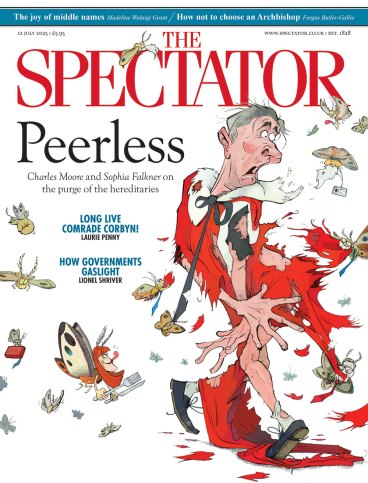
Some people spend years squirming on a leather chaise longue before they come to understand, as Philip Larkin so pithily observed: ‘They fuck you up, your mum and dad.’ Few go on to make peace with the sagacity delivered in his next line: ‘They may not mean to, but they do.’ In My Sister and Other Lovers, Esther Freud’s sequel to her autobiographical novel Hideous Kinky, sisters Lucy and Bea – who spent their early childhood trailing after their hippy mother through 1960s Morocco – slowly edge towards such catharsis. Before that, however, comes a lot more turbulence, and Freud – whose great-grandfather pioneered the couch method – is acutely attentive to its psychological effects.
Back in the UK, but still bound to a mother who hitchhikes her way from one disastrous situation to the next, we see the now grown-up sisters attempt, and often fail, to negotiate life on their own terms. Lucy, the narrator, helplessly caught between her fiery older sister and her unreliable parent, chooses men ‘in direct relation to how likely they are to leave’. Bea, who is traumatised by childhood abuse, finds escape in heroin. For much of the novel, then, Bea is lost to that darkness, but Freud makes her absence feel like a presence.
Delivered in an episodic style reflective of fractured lives, the book skims across time like a stone. When it lands, we’re in a new place, with new people and years may have elapsed. Freud writes for the hard-working reader. She refuses to hold our hand. But there’s a difference between trusting our intelligence and outright neglect. Writers, as Martin Amis once said, ‘must be a good host’. When characters walk on without introduction and past events are mentioned as if we were there (but we weren’t), it starts to feel like we’ve been abandoned at a party in a room full of strangers.
Freud’s proclivity for experimentation also leads to problems at sentence level. Missing commas, presumably sacrificed in the name of style, abound (‘Hearing her name Pearl threw herself between us’); shifting into ‘writerly’ mode leads to confusing descriptions (‘I swallowed so loud the gulp jumped in the car’); and dodgy similes (‘The future lifted like a barn’) make us feel not, as they should, the joy of recognition, but bewilderment. When style compromises meaning, it ceases to be style; it’s just bad writing.







Comments